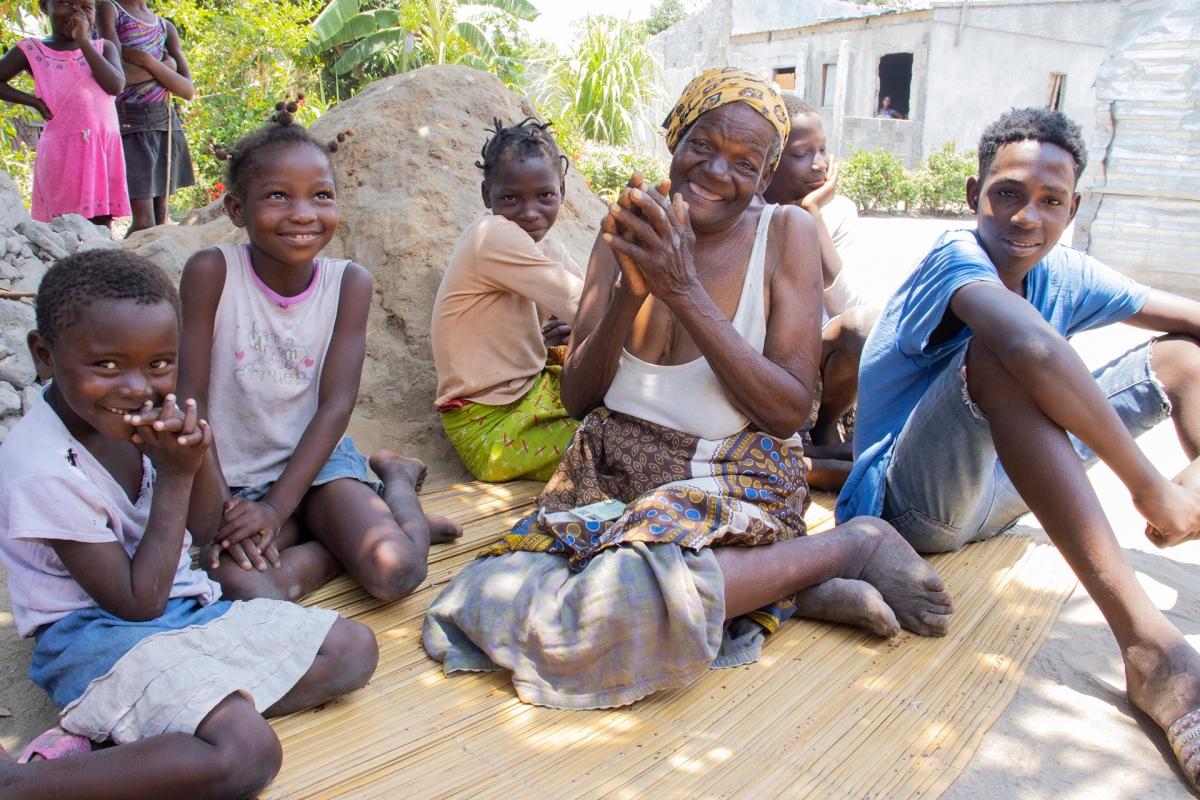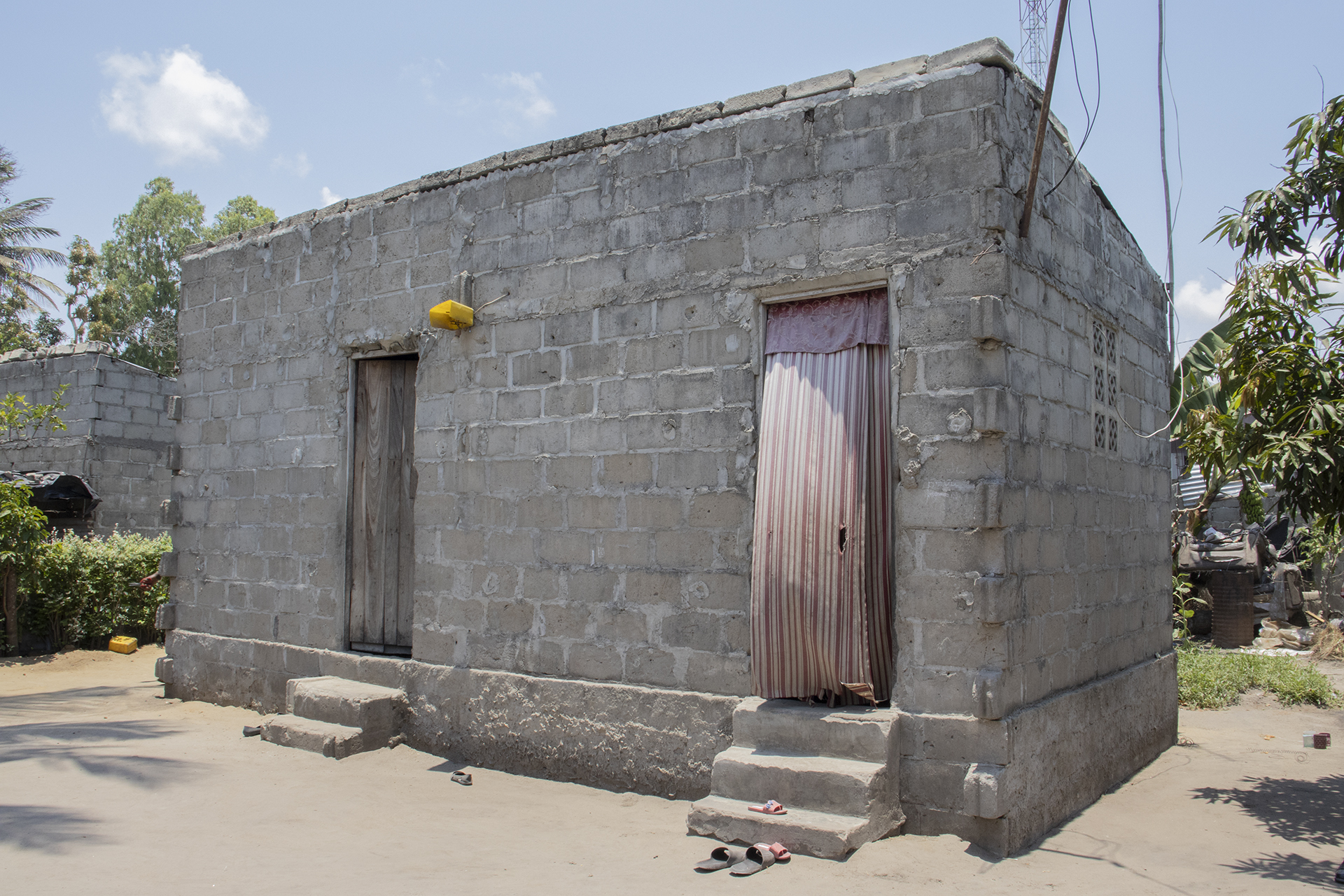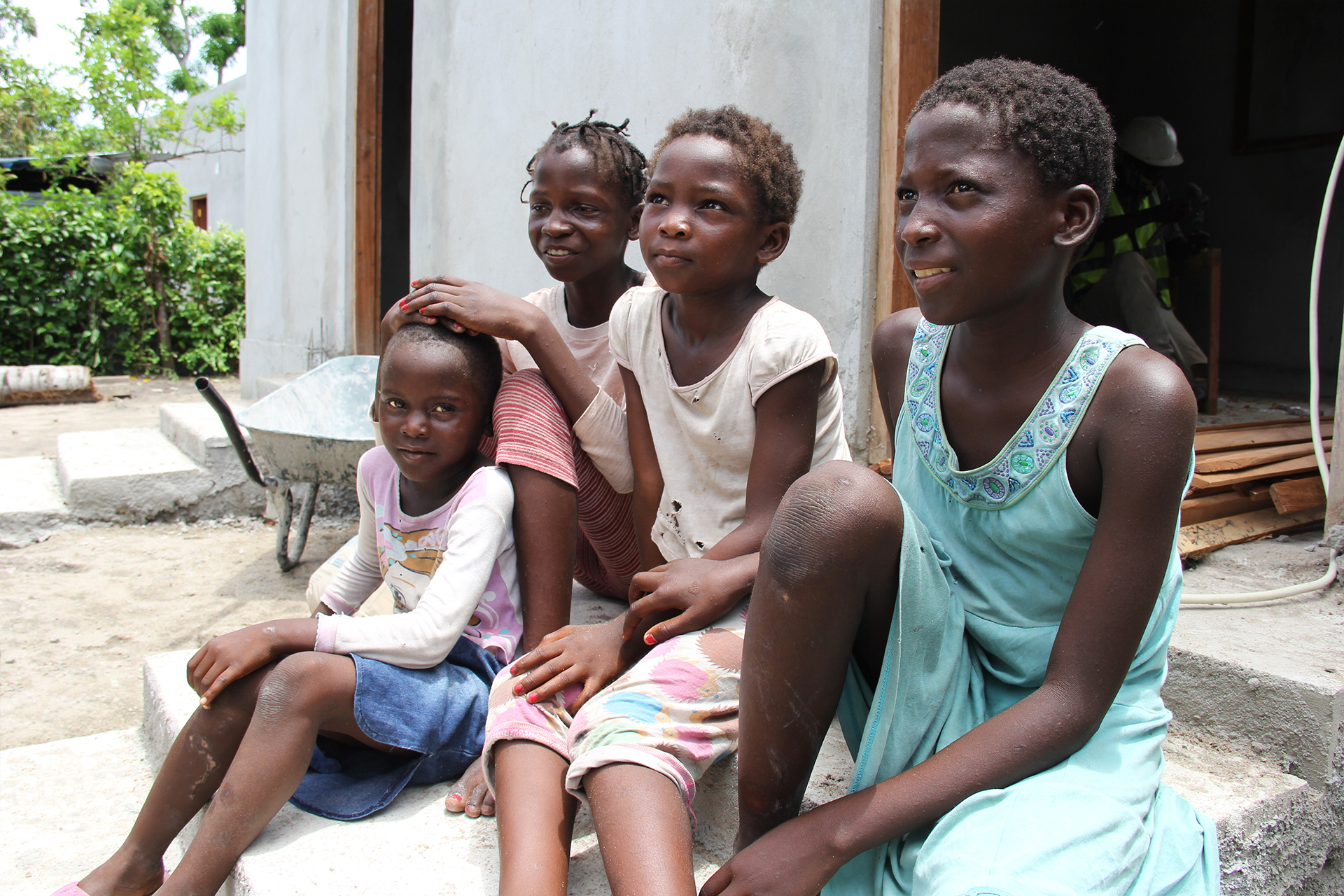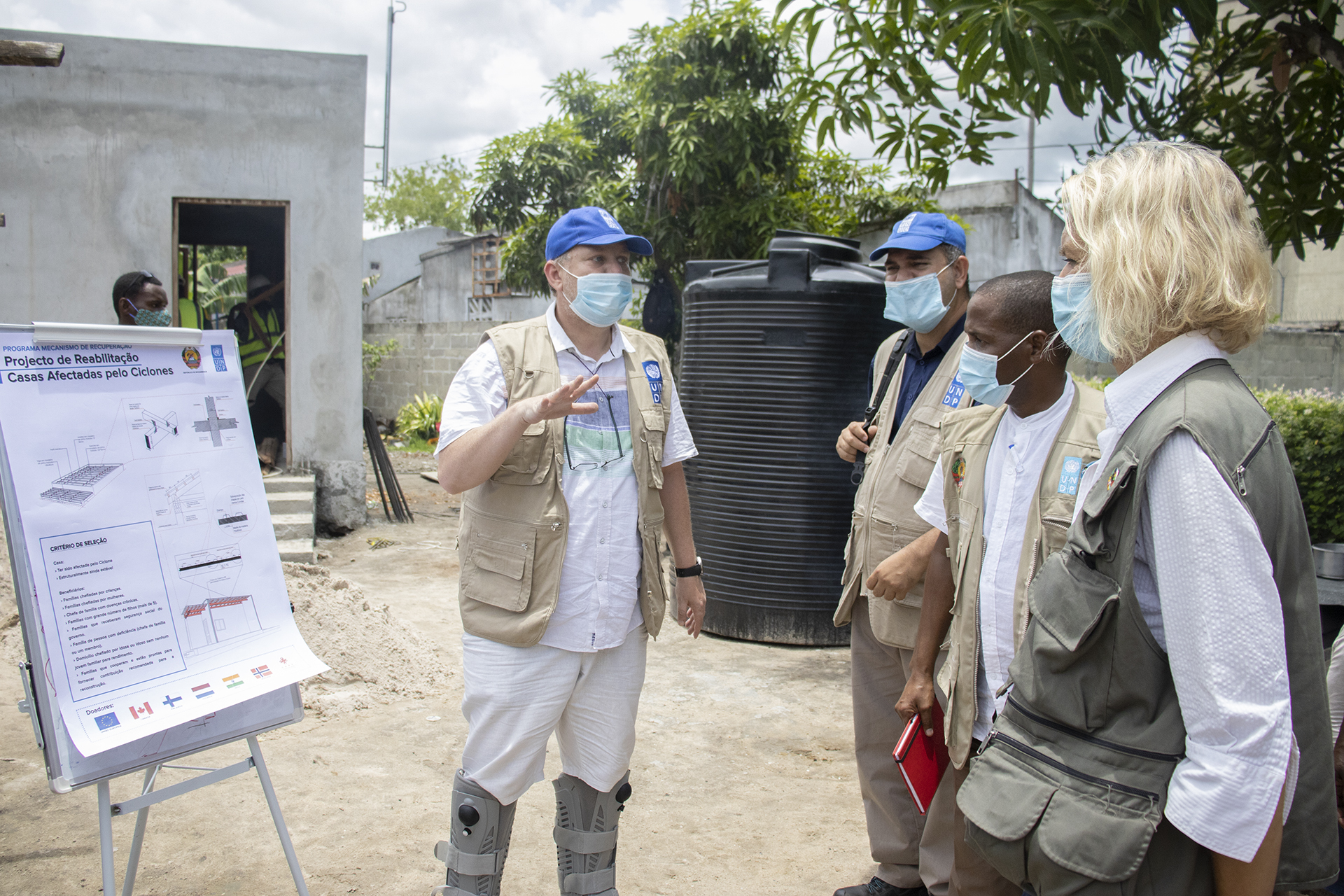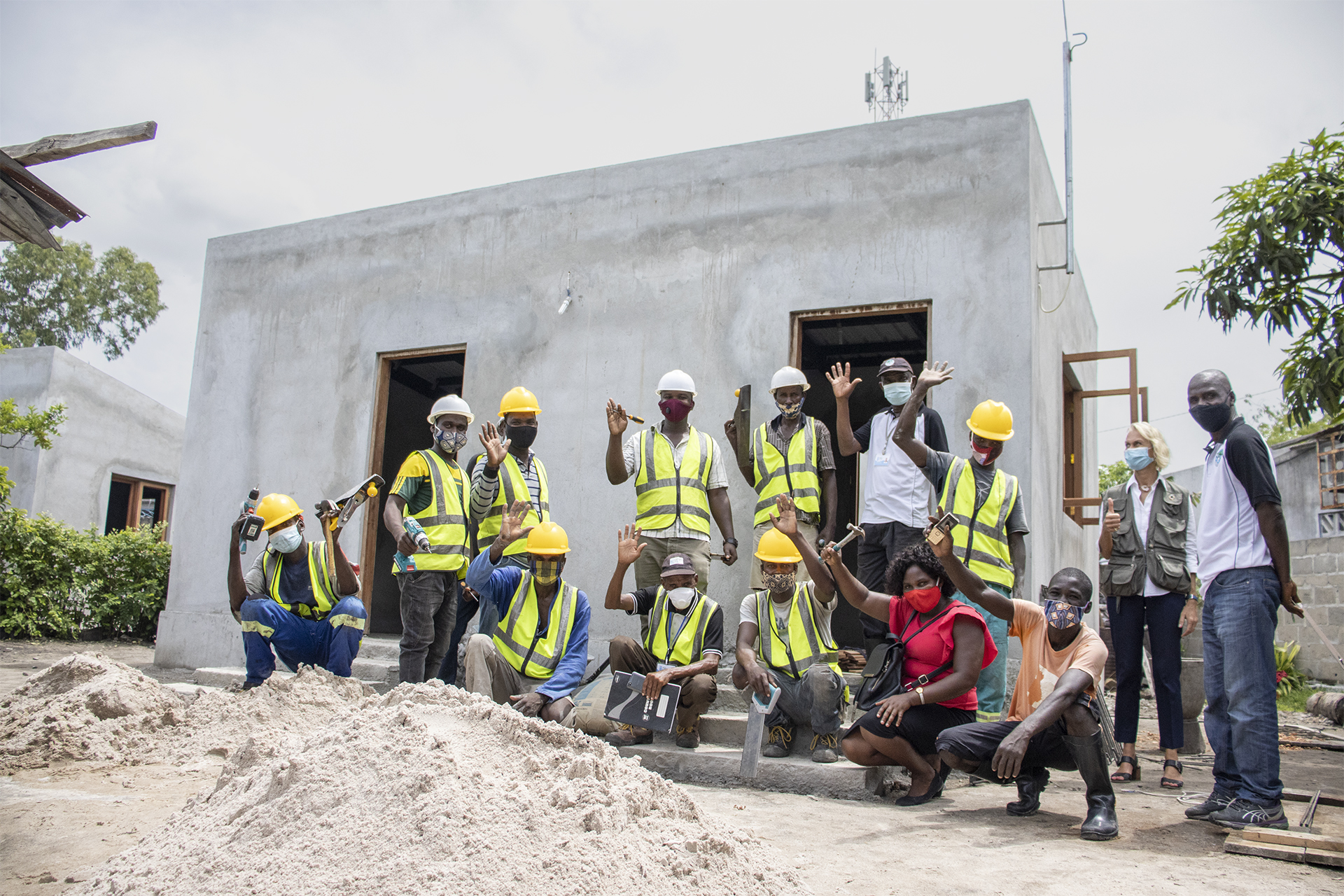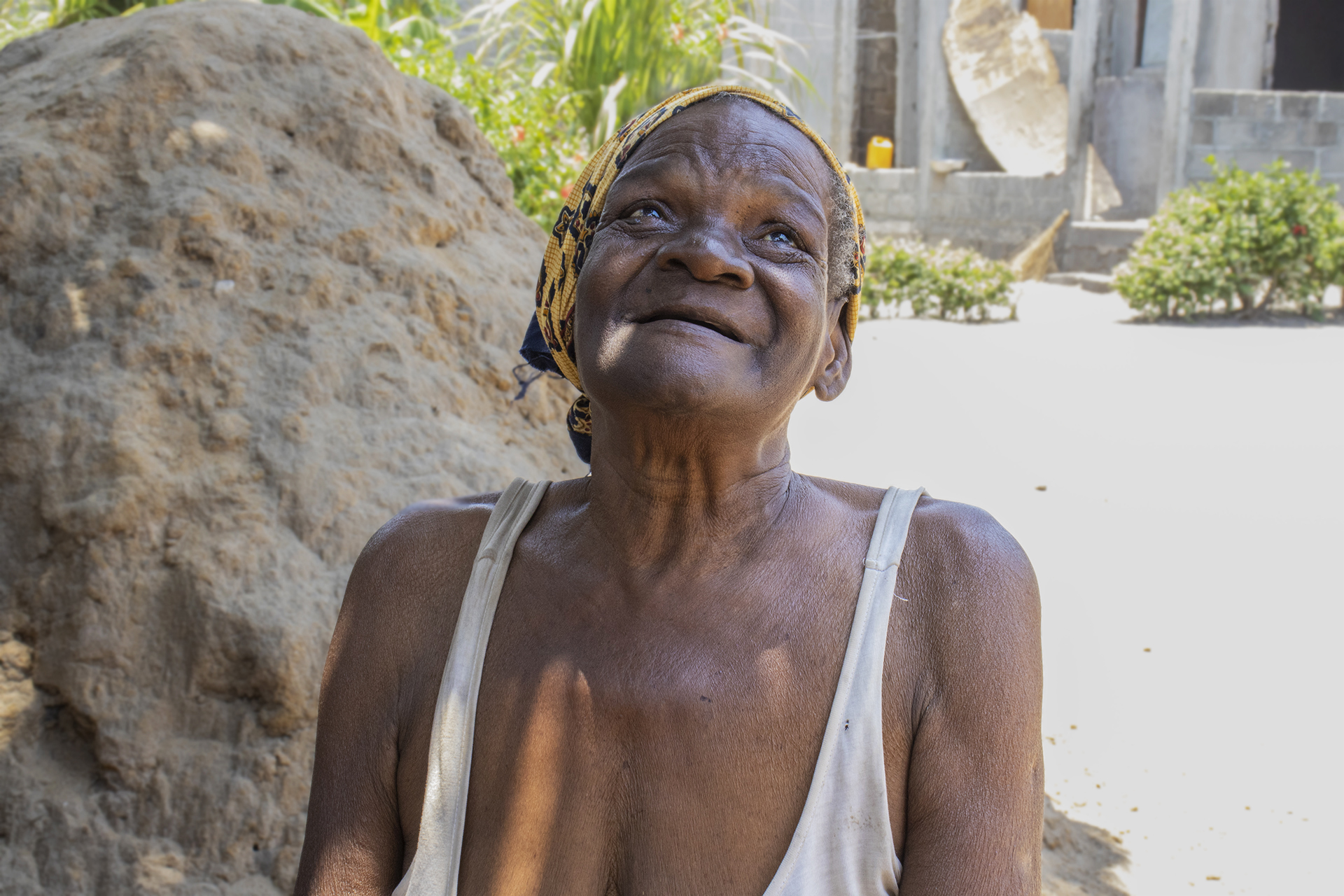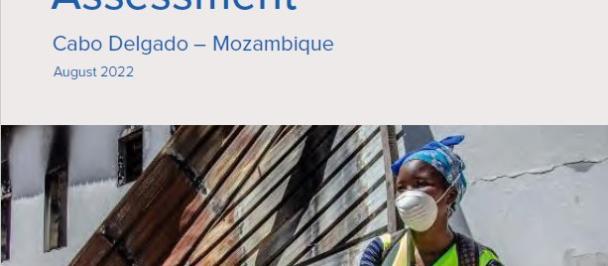The family celebrates the reconstruction of their house made through UNDP's post-cyclone programme.
At age 85, Amélia looks to the future having a safer home for her grandchildren
January 19, 2021
Amélia and her five grandchildren celebrate the reconstruction of their house. As part of the post-cyclone reconstruction project of UNDP Recovery Facility, 320 houses will be rehabilitated in Beira city following resilient construction standards. The beneficiaries are the most vulnerable families, such as those headed by the elderly, single mothers, chronically ill, orphaned children and people with disabilities. Photo by UNDP/Brenda Hada
On 14 March 2019, Amélia Nicolasse Serra's story went in another direction with the arrival of Cyclone Idai in Mozambique. Resident of Beira city, she felt the devastating winds destroy part of her home that night. “I was sheltered by a neighbor and then I went back to live there in the terrible conditions I was in. I started to live only in one side of the house and tried to mend the plates on top”, she recalled.
At that time, the elderly woman relied on the help of neighbors to repair the damage from the materials and debris they could get. Her neighborhood (Manga) was one of the most affected by the disaster, bringing floods and diseases with it – a challenging time for the community to recover.
Amélia's house before the reconstruction. In addition to the damaged roof, the building had no windows and doors, which hampered the family's salubrity and safety. Photo by UNDP/Brenda Hada
In Mozambique, the impact of the Cyclone caused loss of life, widespread destruction of infrastructure and shelters, as well as the interruption of essential services, markets and livelihoods. The effects of the disaster were even more impactful due to the pre-existing vulnerabilities that characterize the most affected areas. Furthermore, Mozambique is one of the African countries most prone to climate-related disasters and is one of the ten countries in the world with the lowest Human Development Index (2020).
It is not surprising that Ms. Amélia has felt these statistics in her own life. The Mozambican lady had already faced at least two major cyclones, countless floods and lost agricultural production. Despite all her years of hard work, Amélia still needs to find the vitality to take care of the five orphaned grandchildren.
Amélia's granddaughters (pictured) also carry memories of having gone through a cyclone. The condition of improved housing for her children may influence their day-to-day studies, safety, health and play time. Photo by UNDP/Brenda Hada
As the head of the family and widow, Amélia receives full assistance on housing rehabilitation through the Recovery Facility (MRF) of the United Nations Development Programme (UNDP), supported by donor partners – Canada, China, Finland , Holland, India, Norway and the European Union. Amélia has her house rehabilitated to the standards of resilient construction (Building Back Better) so that it doesn't suffer again in times of cyclical storms in Mozambique.
In a joint field visit with sister agencies of the United Nations, UNDP assesses housing reconstruction works in Beira city and explains key technicalities and the methodology for resilient reconstruction with community participation. Photo by UNDP/Brenda Hada
“At this moment I live by depending on the support from government and organizations. At my age, I can't stand doing jobs that require a lot of effort. I no longer cultivate crops”, she told.
The integrated assistance she has been receiving through social programs and recovery work of development institutions have been the crucial aspect, especially to overcome the COVID-19 pandemic with more resources. A new latrine was also added to the rehabilitation work at her house to ensure hygiene conditions better suited to the family.
Within the scope of the UNDP Recovery Facility (MRF), other members of their community in Manga neighborhood participate in activities that encourage self-employment with small business kits, savings groups, skills training, temporary jobs through cash transfer (cash-for-work).
Another 320 families living in conditions similar to Amélia's are also contemplated with housing rehabilitation in this phase of the MRF in Beira city. In Sofala province, around 190,000 people have been supported by this programme with activities to generate income and/or to rebuild community and public infrastructure.
Local masons and artisans are hired to carry out the work along with the specialized architects and engineers, to guarantee and encourage local labour. At the same time, partner NGOs work in the community to ensure the necessary social assistance to families. Photo by UNDP/Brenda Hada
Preparing the family for the rainy season
At late December 2020, the routine was once again interrupted by weather. Forecasts indicated that the tropical storm Chalane* would make landfall in Mozambique. Those who had experienced cyclone Idai impact two years before feared the scene would repeat. In this regard, they received support from UNDP and field partners on preventive measures to strengthen their homes and anticipated the expected impact.
Amelia herself was also able to get through the storm inside her house, now strong and safe. Wood and sandbags were installed preventively on the windows and roof by the project team.
“In this storm I did not leave my home. I preferred to stay inside it, because now I understand that I already have a good ceiling and I stayed there until the wind was gone. […] In my view, this house is very strong due to the materials used. As I see it is very well prepared so that I no longer need to go out for any rain”, she celebrated.
With the reconstruction of the house, Amélia can continue her routine relieved and more adapted to climate change. “The rain was falling inside the house and it was demolishing. I was not well. My life condition has already changed because the house will be safer. I am happy and open-hearted because I didn't imagine I would live like this.”
Amélia Nicolasse Serra, 85 years old, beneficiary of the UNDP's post-cyclone Recovery Facility (MRF) programme. Photo by UNDP/Brenda Hada
*Yet, the tropical storm Chalane left around 30,000 homes partially or totally destroyed in Mozambique, and approximately 75,000 people affected, the same as those who suffered from Cyclone Idai in 2019.

 Locations
Locations